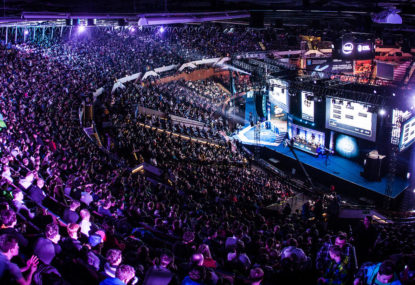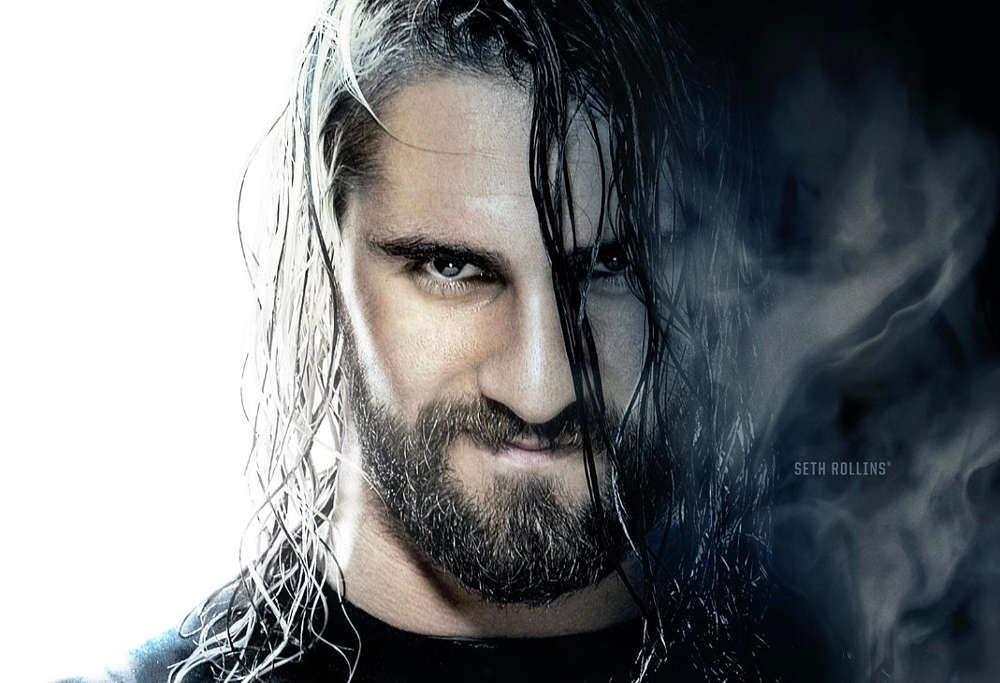2022 Trivia: The Roar's jam-packed Christmas Day sports quiz!
The jam-packed month-by-month quiz full of 2022 sports trivia!

Watching WrestleMania 33 last Sunday reminded me of how much pro-wrestling and pro-gaming have in common.
Whether it’s dramatic video packages, elaborate entrances, commentators losing their minds, or unabashedly cheesy performances, many of the aspects of ‘sports entertainment’ have been integrated into esports.
However, there is one element that’s often conspicuous in its absence: booing.
While tournament have done their best to improve esports from the production side, little has changed with audiences. They show up, fill seats in a venue, and cheer for the players/teams they like. They might bring a sign or chant a player’s name, but they rarely get more involved than that.
Booing, or rooting for a team to lose is rare in esports, and frequently looked down upon when it occurs. It’s a strange part of esports culture – there wasn’t some council that got together and decided that booing was taboo behaviour (there are some exceptions outside of ‘mainstream’ esports). Yet, we’ve somehow arrived at a point where negative crowd reaction is largely discouraged by the fan community, and sometimes even by public figures at tournament organisations.
That’s a shame.
There’s no doubt that esports has successfully channelled the positive energy of live events, similar to the feeling of shared excitement and togetherness you’d get from a concert. However, it hasn’t fully tapped into the fierce tribalism that makes competitive spectacles so uniquely engaging. When you want nothing more than your team/player to win, then by definition, you also want their opponents to lose. Combined, they can create an intensely emotional experience that sometimes leaves fans in tears.
Pro-wrestling – essentially a performance art where the results are predetermined – exists solely based on its ability to manufacture those feelings of love and hate. It’s ironic that in esports, where the competition is as real and as vicious as it gets, it’s only acceptable to express one half of that emotional spectrum.

It’s true that some contests like golf or tennis have a ‘gentlemanly’ inflection, but esports is more akin to games like football or rugby in being a mock battle we wage in lieu of actual combat. From a certain point of view, esports is even more analogous to war than the most violent sport – for god’s sake, the premise of most competitive video games is literally ‘kill the other guys.’
Under those circumstances, it’s odd that esports insists on such an air of civility and politeness.
There’s a mistaken perception that booing is inherently boorish, perhaps because booing has been often co-opted by boorish fans. But a cheer can be just as unsavory as a jeer – for example, TSM chants during an unrelated tournament that’s taking place on another continent. While it’s impossible to define what ‘wholesome’ booing is, it can certainly exist in a way that enhances the atmosphere of a tournament.
A split crowd can accentuate the depth of a rivalry. A one-sided, hostile crowd can turn a mundane match into a thrilling story of defiance.
I admit, critiquing audience behaviour is a murky area to get into, since every fan will prefer to be part of a different crowd. But for whatever reason, if booing makes you uncomfortable, then consider this final point. The esports community often laments that progamers are too reserved, and that the scene would benefit if they were more expressive and honest about their emotions. Maybe, that applies to the audience as well.